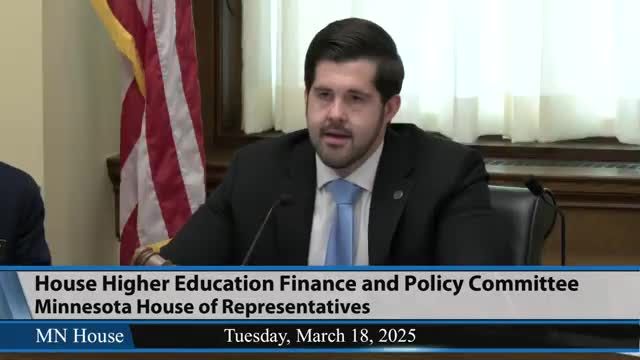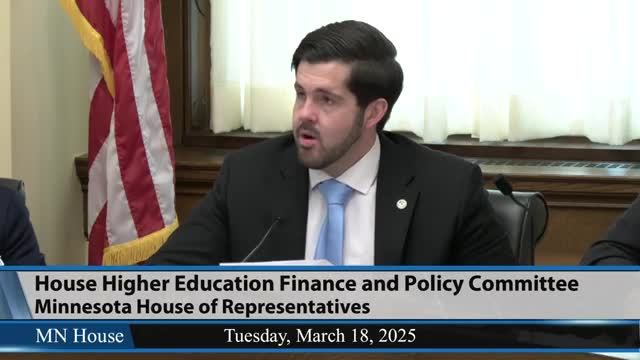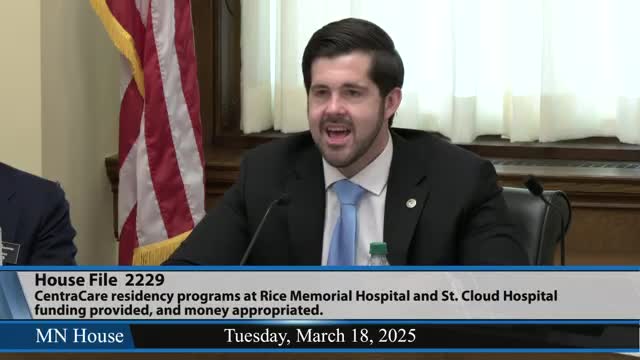Article not found
This article is no longer available. But don't worry—we've gathered other articles that discuss the same topic.

Bill to increase state grants and create ‘State Grant Plus’ advances after Minnesota Education Equity Partnership testimony

Committee adopts amendment and re-refers bill creating education benefit for dependents of 100% disabled veterans

